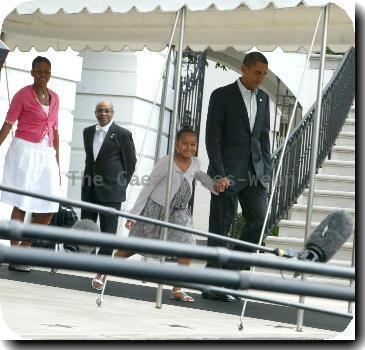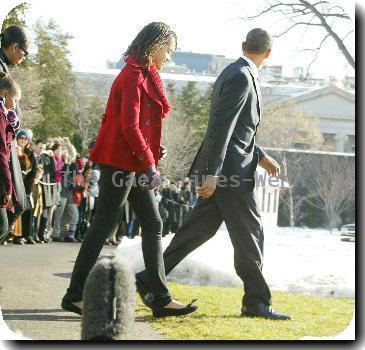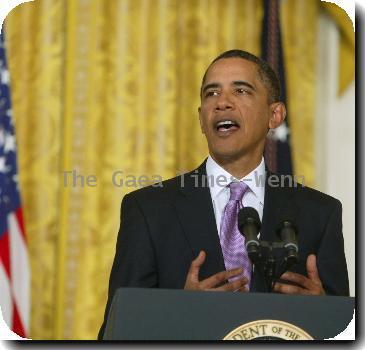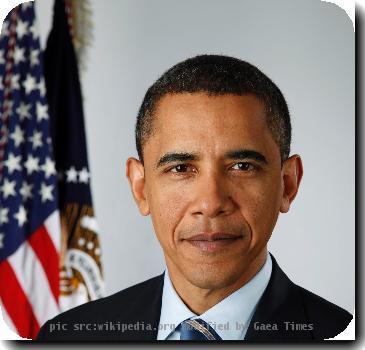Netanyahu says east Jerusalem construction policy unchanged
By Amy Teibel, APSunday, March 21, 2010
East Jerusalem construction policy unchanged
JERUSALEM — Israeli Prime Minister Benjamin Netanyahu said Sunday he would not restrict construction in east Jerusalem, a step requested by the U.S., but would upgrade upcoming indirect talks with the Palestinians to include the main issues dividing them.
Netanyahu originally had wanted to put off a discussion of issues like the status of contested east Jerusalem, final borders and the fate of Palestinian refugees until direct talks are launched.
It was not clear what Netanyahu’s declared refusal to budge on east Jerusalem — the territory that lies at the crux of the Israeli-Palestinian conflict — would mean for future relations with Washington and the rest of the international community.
Netanyahu’s moves go nowhere near the U.S. demand to cancel a major new housing project at the heart of the row, but apparently he has offered enough to prompt U.S. Secretary of State Hillary Rodham Clinton to call them “useful and productive” and dispatch an envoy back to the region this week.
U.N. chief Ban Ki-moon, who was touring the Gaza Strip on Sunday, told reporters that Netanyahu would be meeting with President Barack Obama while in the U.S. The prime minister’s office had no immediate confirmation.
He described Israel’s recent opening of Gaza’s borders to allow in window frames and other supplies to complete a 151-apartment U.N. housing project in southern Gaza as “a drop in a bucket of water.”
The blockade causes “unacceptable suffering” and “undercuts moderates and encourages extremists,” he said, after visiting the project in the Khan Younis refugee camp. “My message to the people of Gaza is this: the United Nations will stand with you, through this ordeal.”
Most of the 15,000 homes destroyed or damaged during Israel’s war in Gaza that ended in January last year have also not been repaired because of the blockade. Israel launched the war after years of militant rocket fire from Gaza on its southern communities.
Hamas police lined the streets in areas Ban visited. They repeatedly prevented journalists from keeping up with the U.N. convoy, blocking roads and repeatedly raising their assault rifles in the direction of the journalists’ cars.
The blockade was imposed in 2007 after Hamas violently took over the territory.
Israeli construction in east Jerusalem is such a fraught issue because it challenges Palestinian claims to that sector of the city as a future capital. The announcement of a major new building project during Vice President Joe Biden’s visit earlier this month insulted Washington and provoked the biggest rift between the two allies in decades.
That rift has put Netanyahu in a particularly difficult bind, forcing him to find a formula that would repair ties with the U.S. without antagonizing his hawkish coalition, which is resistant to partitioning Jerusalem.
Since the feud erupted, Netanyahu has not announced changes in Israel’s policy of allowing unrestricted construction in the eastern sector, home to Jerusalem’s holiest sites. And his office denied reports that he promised to slow construction in the city’s eastern sector.
“Our policy on Jerusalem is the same as that of all previous Israeli governments in the past 42 years and it hasn’t changed,” he told his Cabinet at the start of its weekly meeting. “As far as we are concerned, building in Jerusalem is like building in Tel Aviv. We made this clear to the U.S. administration.”
In a call to Clinton on Thursday, Netanyahu did assure the U.S. that a mechanism would be put in place to ensure that such announcements would not take Washington by surprise again, government officials have said.
But Cabinet ministers said in practice, construction will be restricted — as it has been in the West Bank since November, when Netanyahu officially agreed to do so under heavy U.S. pressure.
Israel annexed east Jerusalem after capturing it in the 1967 Mideast war. The international community does not recognize the annexation and considers the Jewish construction in east Jerusalem to be settlement building.
Netanyahu also told his Cabinet that the U.S.-brokered talks with the Palestinians would include a discussion of the main issues between them, but added that a “real resolution” of the conflicts could only be achieved in direct talks.
These issues include the status of Jerusalem, final borders and the fate of Palestinian refugees from the war around Israel’s 1948 creation.
Netanyahu originally had wanted to put off any discussion of these issues until direct talks start.
The row over east Jerusalem construction held up the start of the indirect talks, which are to be brokered by Washington’s special Mideast envoy, George Mitchell. After Netanyahu spoke with Clinton, Washington announced that Mitchell would return to the region this week to try to get the talks moving.
He is to meet with Netanyahu before the prime minister sets off for Washington and on Monday with Palestinian President Mahmoud Abbas. Mitchell has said he wanted indirect talks between the leaders to begin as soon as possible.
______
AP correspondent Karin Laub contributed to this report from Gaza City, Gaza Strip.
Tags: Barack Obama, Blockades, Gaza Strip, Israel, Jerusalem, Middle East, North America, Palestinian Territories, Territorial Disputes, United States





